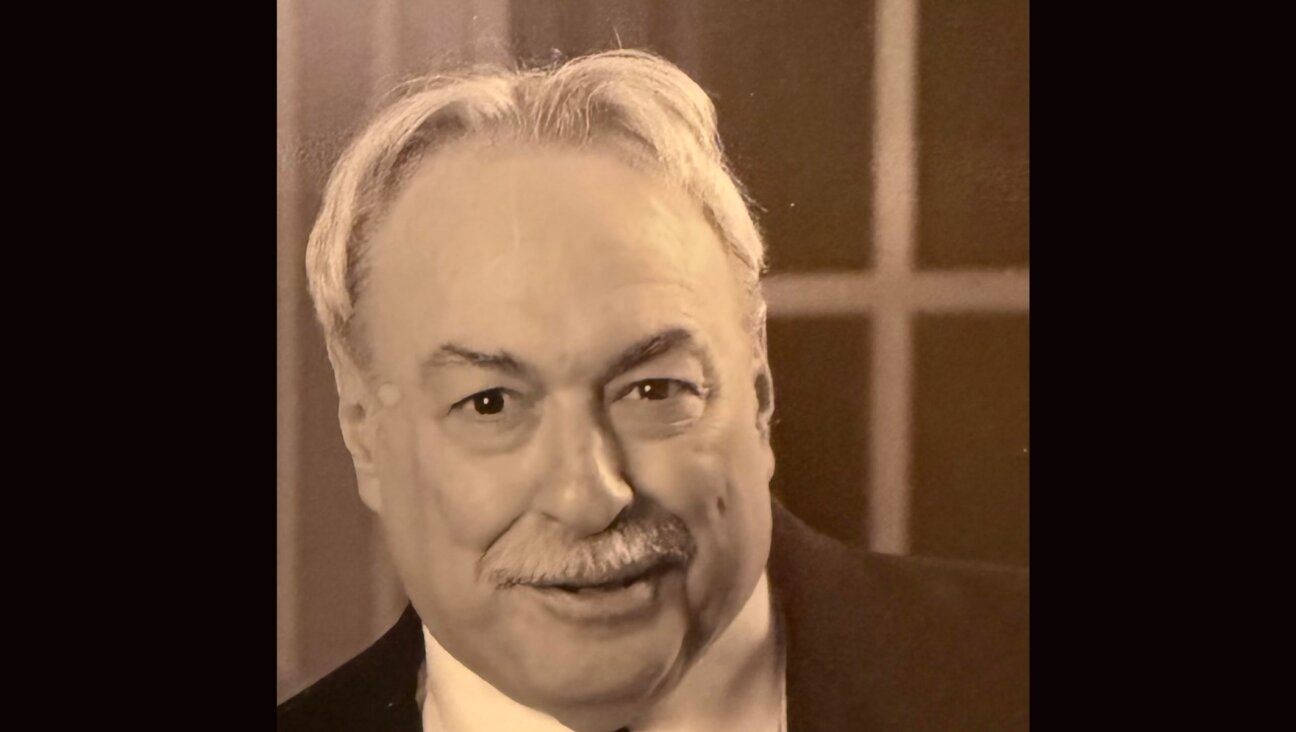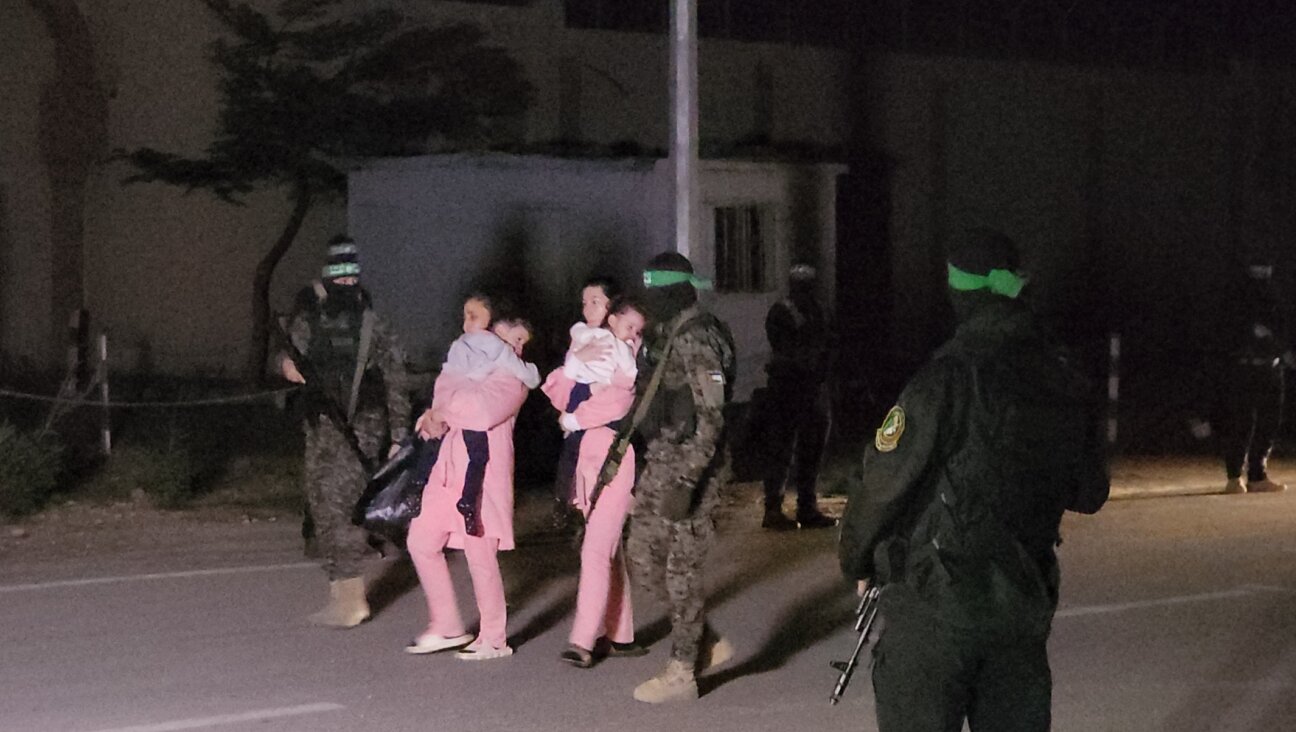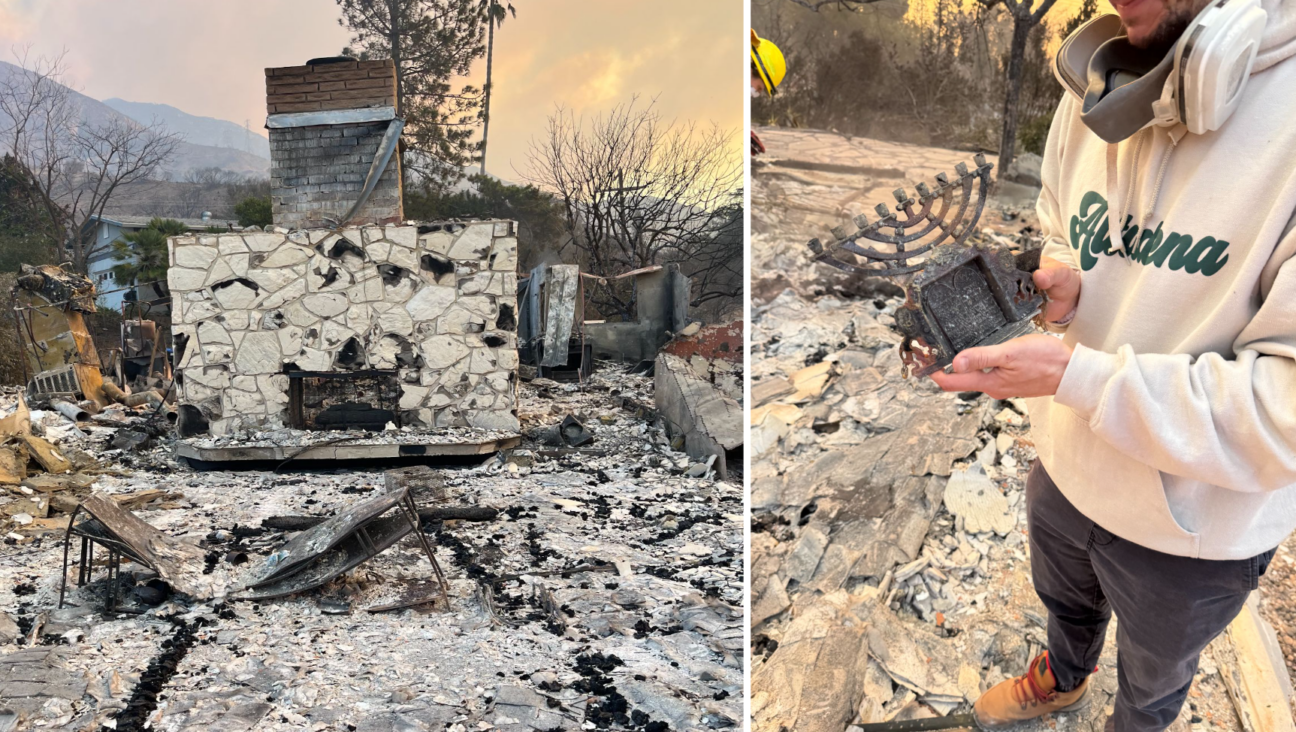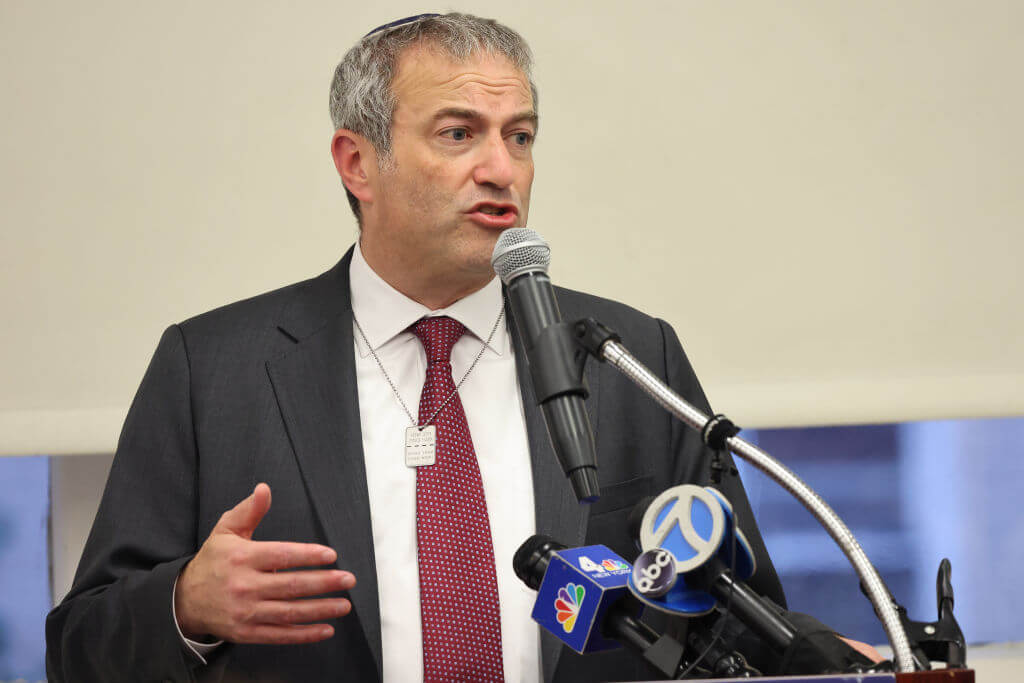Jewish Cadets Find Friendly Environment at West Point
WEST POINT, N.Y. — When Adam Sasso arrived at the U.S. Military Academy in the summer of 2001, he expected to find intense challenges, close friendships and rigorous academics. But he was pleasantly surprised to also find at the army’s elite college a Jewish community he describes as “very committed.”
There are fewer than 90 Jews in West Point’s 4,000-person student body, but they constitute a particularly tight-knit and active group: Jewish cadets gather for Friday night services, perform with a Hebrew choir and attend parties sponsored by the campus Hillel chapter. Moreover, students, alumni and Jewish staff say that they, as Jews, feel supported and embraced by the broader West Point community.
The flourishing of Jewish life at many private and public universities across the country has long been taken for granted. But recently, West Point’s sister institution — the U.S. Air Force Academy — has become embroiled in a growing scandal over alleged religious coercion after Jewish cadets there complained of Christian proselytizing. West Point’s Jewish cadets and personnel have said that their experiences at a military academy could not be more different.
“West Point makes sure that the Jewish community is taken care of,” said Bruce Bublick, a rabbi, captain and Air Force chaplain stationed at Stewart Air National Guard Base, 10 miles north of West Point. Bublick filled in as West Point’s Jewish chaplain in 2003, when the academy’s permanent rabbi was called to Iraq. He credits the administration with proactively seeking a replacement, noting that “rather than just sitting back and saying, ‘You know, they’re aren’t enough chaplains to go around,’ they said, ‘We must have a Jewish chaplain at this academy.’”
Last week, West Point’s 18 graduating Jewish cadets — joined by classmates, family, alumni and several non-Jewish administrators — gathered in the Jewish chapel for a baccalaureate service before commencement. The choir sang, each graduate received a kiddush cup or candlesticks from the Jewish War Veterans, and Ari Fleischer, former White House press secretary to President Bush, addressed the crowd. “You provide a double mitzvah,” he told the cadets. “The epaulets on our shoulders tell the world you are Americans; the faith in your hearts tells the world you are Jews.” After the ceremony, the crowd milled around tables piled high with cold cuts and salads.
West Point insiders offered a range of explanations for the college’s Jewish-friendly environment. Some noted that the school is located about 50 miles north of New York City, home to the country’s largest Jewish community. In contrast, the Air Force Academy is located Colorado Springs, Colo., a city that has become a hotbed of evangelical Christian activism.
Others credited the more team-oriented nature of army life and combat, or the active network of Jewish alumni.
Whatever the reason, West Point’s tradition of accepting Jews is as old as the institution itself: Simon Levy was one of two students in the academy’s inaugural class of 1802. Throughout the 1800s, West Point typically had one or two Jewish students per decade; by the 1940s, the average had jumped to five to 10 per year. In total, the academy has nearly 820 Jewish alumni, about three-quarters of whom are living.
Those alumni have supported Jewish life on campus. “I have a love for these cadets as if they were my grandchildren,” said Lewis Zickel, class of 1949, who currently serves as the president of the West Point Jewish Community Council, which supports Jewish life at the academy. Alumni attend Friday night services regularly, donate food for parties and holidays, and sponsor off-campus trips for the cadets, which this year included community service in Baltimore and white-water rafting in South Carolina.
The backbone of Jewish life on campus is the West Point Jewish Chapel, a modern mix of soaring skylights and natural materials that was designed by architect Max Abramovitz, who also created Lincoln Center’s Avery Fisher Hall. Alumni raised the $7.5 million needed to construct the building, which was completed in 1984 and donated to the school. Currently, West Point is the only service academy to have a specifically Jewish house of worship; the Air Force Academy has a Jewish sanctuary in its main chapel, while a synagogue at the Naval Academy is slated to open next fall.
The chapel is invaluable as a home away from home, according to the Jewish cadets who go there for choir practice, Hebrew classes or just to watch football on the big screen television. It is also one of the few places on campus where they are not bound by a strict code of behavior. In addition, said Benjamin Diamond, 20, who will be a junior next year, “I come here for my bagel-and-lox fix.”
As for life outside the walls of the Jewish-only space, both students and alumni credit the West Point administration with fostering a tolerant atmosphere. Out of nearly 200 graduates, from the classes of 1936 through 2008, only 16% surveyed indicated any level of antisemitism at the academy, said Zickel, who is conducting research for a book about Jews at West Point.
When abuses do occur, they are taken seriously by the administration, said Sasso, one of 19 graduating cadets selected to go to medical school next year. He recalled a Sunday during his first year at West Point, when an upperclassman told the assembled formation that those “not going to church were heathens and our blatant lack of religiosity disgusted him.” After Sasso, prodded by his roommates, complained to the administration, the offending cadet was forced to make a formal apology to the entire company. “I was just so moved that someone cared so much about making sure that I felt accepted,” Sasso said.
During the remainder of his time at the academy, Sasso has participated in the Respect program, which was started in the early 1990s to ensure that incidents of sexism, racism and religious intolerance at the academy are recognized and dealt with. The program includes values-education training that is mandatory for all cadets. In addition, student representatives are responsible for reporting problems to the administration. In contrast, the Air Force Academy unveiled its first religious sensitivity training program last year; so far, it includes no formal component of student officers.
Carlos Huerta, a captain and the academy’s permanent rabbi, now back from Iraq, acknowledged that Jews at West Point are a minority that is sometimes going “down the stairs in the subway right when everyone is going” out, but said that interfaith tolerance “is almost the air we breathe over here.” Huerta is regularly invited to a Bible study led by the head chaplain Scott McChrystal, who is an Assemblies of God minister. This summer, a rabbi will serve as the head chaplain at the academy’s training camp. And next year, the musical director of the Hebrew choir will be a Muslim cadet.
Several members of West Point’s Jewish community said that army life is itself a major inculcator of tolerance. “I lived with my soldiers for three months on the battlefield [in Iraq] and we knew how each other smelled in the dark,” Huerta said. “The major weapons system in the Air Force is what? It’s a very expensive airplane. In the army, our primary weapons system is the individual soldier. So our whole moral ethic is directed to taking care of people. If a soldier is under enemy fire, you’ll risk 10 other soldiers to bring him back.”
A message from our Publisher & CEO Rachel Fishman Feddersen

I hope you appreciated this article. Before you go, I’d like to ask you to please support the Forward’s award-winning, nonprofit journalism so that we can be prepared for whatever news 2025 brings.
At a time when other newsrooms are closing or cutting back, the Forward has removed its paywall and invested additional resources to report on the ground from Israel and around the U.S. on the impact of the war, rising antisemitism and polarized discourse.
Readers like you make it all possible. Support our work by becoming a Forward Member and connect with our journalism and your community.
— Rachel Fishman Feddersen, Publisher and CEO























